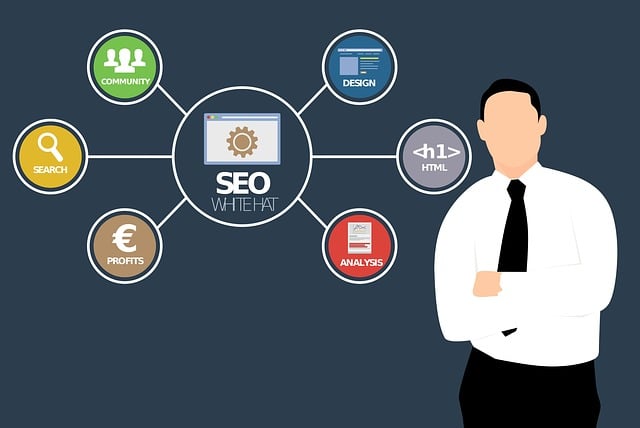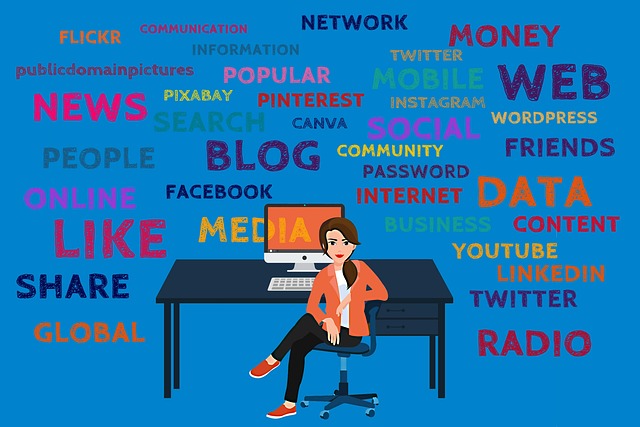The Digital Marketing Summit highlights the rapid integration of Artificial Intelligence (AI) as a core strategy in the industry, transforming customer acquisition and retention through personalized content creation, predictive analytics, and precise messaging. Experts discuss AI's role in leveraging machine learning algorithms for granular consumer behavior insights, optimizing ad placements, real-time content generation, and enhancing conversational interactions via NLP. AI-driven tools like chatbots and virtual assistants revolutionize customer support. While addressing ethical concerns such as privacy and bias, the future of digital marketing is poised to be driven by AI innovations, with case studies showing its successful impact on engagement, sales, and ROI.
“The digital marketing landscape is undergoing a profound transformation with the rise of artificial intelligence (AI). At the forefront of this revolution is the potential of AI to reshape how businesses connect with their audiences. This article explores the various facets of AI’s impact on marketing, from personalized campaigns and predictive analytics to chatbots and ethical considerations. Discover how this technology is driving innovation at the Digital Marketing Summit and beyond.”
The Rise of AI in Digital Marketing: A Revolution at the Summit

The digital marketing landscape is undergoing a profound transformation, led by the ascendance of AI technologies. This revolutionary shift has propelled the industry to new heights, with Artificial Intelligence no longer a futuristic concept but an integral part of modern marketing strategies. At the forefront of this evolution is the Digital Marketing Summit, where experts gather to explore the immense potential of AI in shaping consumer experiences and business growth.
AI’s impact on digital marketing is far-reaching. From personalized content creation to predictive analytics, these tools are enhancing every aspect, from customer acquisition to retention. Marketers can now leverage machine learning algorithms to understand consumer behavior at a granular level, enabling them to deliver tailored messages that resonate deeply with their audience. This level of precision and adaptability is what sets AI apart, making it the game-changer in today’s competitive market.
Understanding the Power of AI for Targeted Campaigns

In today’s digital era, Artificial Intelligence (AI) is transforming marketing strategies, enabling businesses to understand consumer behavior like never before. By leveraging machine learning algorithms, AI can analyze vast amounts of data from various sources, allowing marketers to create highly targeted campaigns. This level of personalization ensures that each customer interaction feels unique and relevant, significantly enhancing engagement.
Attending the Digital Marketing Summit is a must for professionals seeking to harness this power. Experts at these events share insights on leveraging AI to predict consumer preferences, optimize ad placements, and even create dynamic content in real time. With AI, marketers can move away from broad strokes and embrace precision, ensuring their messages land exactly with the intended audience, driving conversions and boosting ROI.
Personalization at Scale: AI's Role in Customer Engagement

In today’s digital era, personalization has become a key differentiator in customer engagement. Artificial Intelligence (AI) plays a pivotal role in enabling businesses to deliver highly personalized experiences at scale. By leveraging machine learning algorithms, AI can analyze vast amounts of customer data to understand preferences, behaviors, and trends, allowing for tailored content delivery that resonates with individual customers. This level of personalization fosters stronger connections between brands and their audiences, driving engagement and loyalty.
At the Digital Marketing Summit, industry experts highlighted how AI is revolutionizing marketing strategies. Through predictive analytics, AI can anticipate customer needs before they even arise, enabling proactive campaigns that capture attention and drive conversions. Moreover, natural language processing (NLP) facilitates conversational interactions, enhancing customer service and providing valuable insights for further personalization. As AI continues to evolve, its integration into marketing practices promises an exciting future where every customer interaction is optimized for maximum impact.
Predictive Analytics: Foreseeing Trends and Consumer Behavior

Predictive analytics is a powerful tool that allows marketers to foresee trends and consumer behavior, thanks to AI’s ability to analyze vast amounts of data. By utilizing machine learning algorithms, businesses can identify patterns and insights hidden within customer interactions, purchase history, social media trends, and more. This capability enables marketers to make data-driven decisions well in advance, allowing them to stay ahead of the competition.
For instance, predictive models can anticipate purchasing behaviors, enabling companies to personalize marketing campaigns and offer tailored promotions. Additionally, these analytics can help businesses identify emerging market trends during Digital Marketing Summits or industry events, ensuring they remain at the forefront of their respective fields. This forward-thinking approach optimizes marketing strategies, enhances customer satisfaction, and drives business growth.
Chatbots and Virtual Assistants: Enhancing Customer Support

In today’s digital era, Chatbots and Virtual Assistants have emerged as powerful tools for enhancing customer support in marketing strategies discussed at the Digital Marketing Summit. These intelligent systems can handle a multitude of tasks, from answering frequently asked questions to guiding customers through complex purchase processes. By leveraging AI, businesses can provide 24/7 support, improving customer satisfaction and loyalty.
Virtual assistants offer personalized interactions, using past purchase history and customer preferences to tailor recommendations. This level of customization was once unimaginable but now forms the crux of modern marketing strategies. At the Digital Marketing Summit, experts highlighted how these technologies not only streamline operations but also foster stronger connections with customers, setting new benchmarks for excellence in customer service.
Ethical Considerations: Navigating Privacy and Bias in AI Marketing

As artificial intelligence (AI) continues to transform digital marketing, it’s crucial to address ethical considerations, particularly concerning privacy and bias. The integration of AI in marketing strategies offers immense potential for personalization and efficiency, but it also raises significant concerns about data privacy and algorithmic fairness.
At the Digital Marketing Summit, experts emphasized the need for transparent practices when employing AI technologies. Companies must ensure they obtain informed consent from users regarding data collection and usage, especially when leveraging AI for targeted advertising. Moreover, addressing bias in AI algorithms is paramount to prevent unfair discrimination based on race, gender, or other demographics. Regular audits and diverse datasets can help mitigate these issues, ensuring that AI marketing remains ethical and responsible in an increasingly digital landscape.
The Future of Marketing: AI Innovations to Watch Out For

The future of marketing is here, and it’s powered by Artificial Intelligence (AI). As we move further into the digital age, AI innovations are transforming how businesses connect with their audiences. At recent Digital Marketing Summits, experts have highlighted several key trends to watch. One such trend is personalized content creation, where AI algorithms analyze vast amounts of consumer data to deliver tailored messages that resonate deeply with individual preferences.
Another notable development is predictive analytics, which allows marketers to anticipate customer behavior and market trends. By leveraging machine learning, brands can optimize their strategies, allocate resources efficiently, and ultimately drive higher returns on investment. These advancements promise to revolutionize marketing not just as a tactical function but as a strategic driver of business growth and success.
Case Studies: Success Stories of AI Implementation in Marketing

The implementation of Artificial Intelligence (AI) in marketing has been a game-changer for many businesses, revolutionizing their strategies and delivering remarkable results. Case studies from industry leaders who have successfully embraced AI in their marketing efforts showcase its potential to transform traditional marketing practices. For instance, at the recent Digital Marketing Summit, several companies shared their journeys of using AI-powered tools for personalized customer engagement, predictive analytics, and automated content creation. These advancements have enabled them to gain deeper insights into consumer behavior, improve campaign effectiveness, and enhance overall customer satisfaction.
One standout example presented at the summit was a retail brand that employed AI chatbots on their website. By leveraging natural language processing (NLP), the brand created an interactive shopping experience, offering personalized product recommendations and 24/7 customer support. This initiative resulted in increased sales, improved customer retention rates, and valuable data-driven insights. Another success story featured a media company that utilized AI algorithms to optimize ad placement and targeting, leading to higher click-through rates and better ROI for their clients. These real-world applications demonstrate how AI is reshaping digital marketing, offering efficient solutions and setting new benchmarks for campaign performance.
